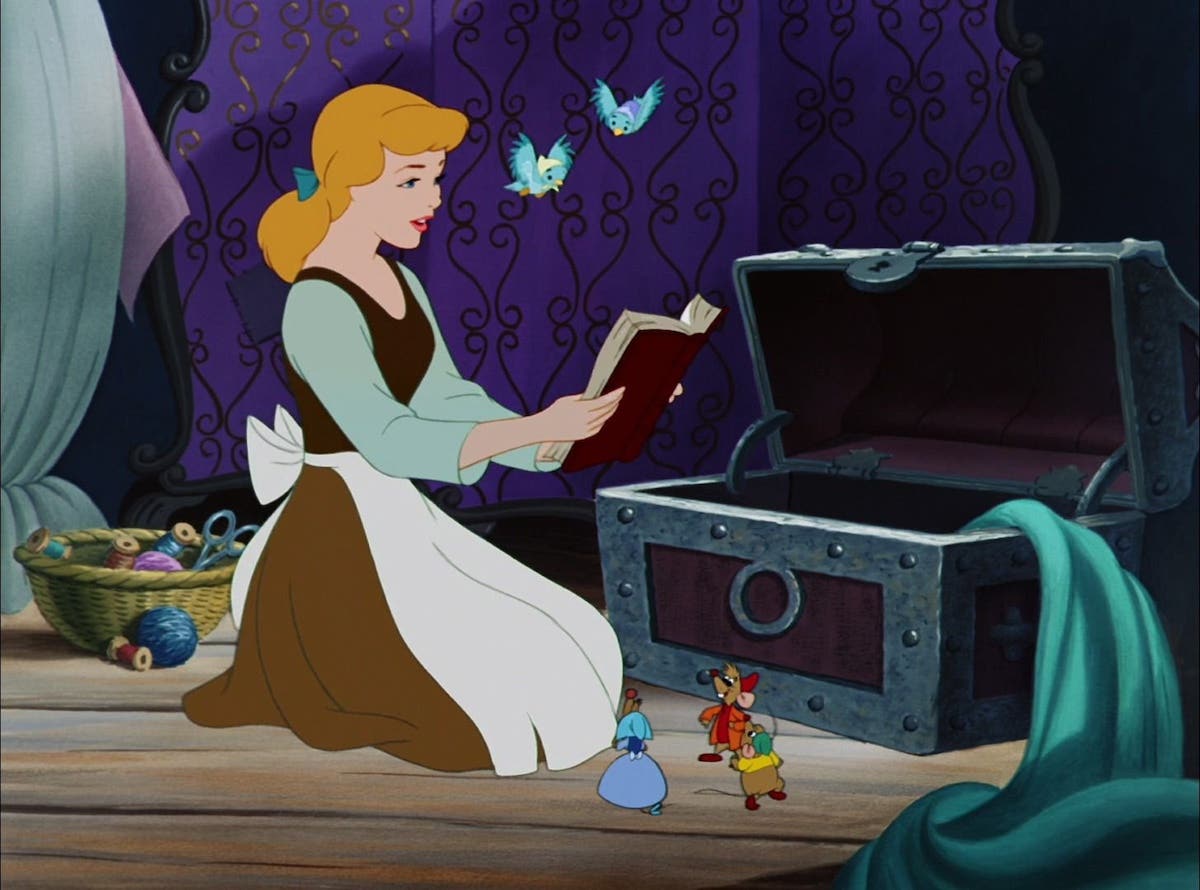Behind the Lines with DR: Writers Guild Arbitration – Fight or Flight
By Doug Richardson Ring ring. “Hi. It’s Doug Richardson. You’ve reached my voicemail. Please leave a message.” Beep. “Hi, Doug. It’s Susie from credits over at the Writer’s Guild. We…
By Doug Richardson
Ring ring.
“Hi. It’s Doug Richardson. You’ve reached my voicemail. Please leave a message.”
Beep.
“Hi, Doug. It’s Susie from credits over at the Writer’s Guild. We have a decision on the arbitration. Please call me back at your soonest convenience…”
Arbitration.
Just hearing the word is stimulus enough to produce a flop sweat. And it wasn’t even my name in the fire. The preceding phone message was merely to inform me that a decision had been arrived upon involving a credit throw-down amongst writers other than myself. On this particular occasion, I was one of the three volunteer arbiters deciding whose names would end up on screen, and the movie poster, plust some massive chunk of ego-advertisement erected along Sunset Boulevard.
But whether you’re the one reading a Guild arbitration or one of the writers engaged in the bloody fight, it is, and will always be, an awful process. Yet it remains as common as a Marvel superhero sequel and something each and every script jockey should expect to experience.
Here’s my most memorable tale.
Author Robert “Bob” Crais was the first to have a crack at adapting his novel, Hostage. More often than I’d like to count, I’d been the guy in his position—adapting my own book for the screen or writing an original screenplay on assignment, only to be replaced and have to suffer another screenwriter usurping my ride. Sure. It’s part of the business. But it’s never any fun to be dealt out of the game, forced to helplessly look on from a distance. So when I signed on to rewrite Hostage and steer the script through months of production, I attempted a different tact. I chose to engage with my predecessor and offer a writer’s hand of friendship.
Producer David Wally had expressed to me on more than one occasion that Bob was a stand-up guy. Proving his point, he’d arranged for the three of us to meet up at a Topanga Canyon Mexican joint, to eat chips and salsa and knock back some cold cervezas. We traded the usual writer’s war stories about agents and easy actresses. By the end of the evening, I’d promised to keep Bob in the loop. I also made it my responsibility to make sure Bob got his fair share of any swag that came my way. Logo’d hats, t-shirts. I delivered. When Bob requested an on-screen cameo in the movie, David Wally and I hooked him up with the part of a SWAT sniper and set him for a fitting with the show’s costumer. And when the month of night shoots began, Bob helped me survive the turgid weekends and stay on the upside-down schedule by closing a few of our neighborhood bars.
Yeah. Bob came as advertised. He was cool.
Then Bob decided to sue the movie. Which, I might add, was his right and obligation. Just a little issue involving payment over the rights to his novel on which the movie was based. Then things got kinda messy. Bob’s sniper cameo was summarily cut before he had a chance to roll film on it. It was also strongly recommended that those of us still working on the production cease contact with the author while the conflict was being resolved. It wasn’t so difficult considering Bob Crais hadn’t any interest whatsoever in talking to anybody associated with the picture. And that included me.
The production eventually wrapped. And months later, once the picture was locked, it was time to discuss the issue of credit.
“Got a call from the company,” said David Wally over the phone. “They’re ready to submit credits to the Guild. How would you like them to read?”
First allow me this brief explanation of the initial process. The submission of credits is something all signatories to the Writers Guild of America are required to perform. In essence, it’s the studio’s opinion as to how they believe the final on-screen writing credit should read. It’s customary for the studio to consult with the producer(s) and sometimes the director before they commit the official opinion to paper. It’s not so customary that they consult the last writer – just the writer whose ass they feel most compelled to kiss.
On this rare occasion, it was my butt that required lip service. Hostage was a special case in that a three-week favor had mushroomed into over a year of my life. I’d even been offered a producer’s credit in lieu of all the hassle the gig had inflicted on my life. A producer’s credit which I politely declined. Why, you ask? Because making me a producer on the movie would’ve triggered an instant WGA arbitration. Not just that, but coming to the writers’ table as either producer or director automatically raises the credit threshold. In other words, the credit bar is higher for writing producers and directors to deter the rewriting of lowlier, less powerful word jockeys. Unfair, you say? In my opinion, yes. But not in the opinion of the majority of voting WGA members.
“I think credit should read the way I always thought it should,” I replied to David Wally’s query. “Screenplay by Robert Crais and myself. In that order. Based, of course, on Bob’s novel.”
“Will do,” said David Wally. “But you’re being way too fair to Crais.”
“Fair is fair,” I said. “And that’s the credit that should create the least amount of conflict.”
In my dubious career I’d already been through three prior arbitrations. I didn’t need a painful fourth. The process was just too damn traumatizing. Writer versus writer? It plain sucked.
So a Tentative Notice of Credit was sent to the WGA. At my request it listed both Robert Crais and yours truly as co-screenwriters of Hostage. Upon receipt the Guild forwarded an official missive to all participating scribes. In the case of Hostage, the recipients were only Bob and myself. If the order and credit were to be agreed upon, our instructions were to contact the Guild credits’ department by both phone and in writing that all parties were comfortable enough to move on with our word-loving lives. If notice was not agreeable, it was up to one of us to send up a flare of protest.
Which is precisely what Robert Crais did. He protested.
The WGA credits department called to inform me that the book’s author, who’d finally been paid for the rights to his novel, was seeking sole screenwriting credit: Screenplay by Robert Crais based on the novel by Robert Crais.
This also meant that in Bob’s heart, mind, and bone marrow he fully intended to erase me from any and all onscreen participation in the movie.
With that, I cursed so many blue streaks I could’ve repainted the famous sky wall at Paramount.
“I thought you said Robert Crais was a cool guy?” I barked at my war buddy, David Wally.
“And he was a cool guy,” yelled David, “Until the prick-asshole decided to sue the fuckin’ movie!”
We both laughed. Though inside I was sick at the idea that, after all I’d been through — the nights, the wars, not to mention the thousands upon thousands of words I’d strung together in order to make Hostage something worth watching – not to mention missing a year of my children’s lives – it would be up to three anonymous WGA arbiters to decide if my name would even make the final print, the posters, the DVDs, for forever and always.
I emailed a note to Bob Crais. I straight-up asked him if he honestly felt he deserved sole credit on the film while leaving me with none whatsoever.
Bob Crais responded with a succinct note that read as follows:
“Doug. I honestly do. Bob”
I couldn’t imagine what precisely was the motive behind Bob’s credit grab. Especially after all I’d done for him prior to his suing the movie – not to mention insisting he receive first position in the credit block. I can, though, tell you what I think drives way too many writers into wrangling for undeserved onscreen recognition.
Money.
The most obvious of motives are the hefty residuals that can be banked after a hit movie and also the potential for later employment by studios who generally prefer to hire writers with successful track records.
But there’s this other, less discussed, carrot-on-a-stick. It’s this little clause found in most screenwriter’s motion picture contracts called the “credit bonus.” Simply put, if the writer gets credit, the writer shall receive a big-assed bonus. Such is usually a last-minute negotiating giveaway to the writer in lieu of taking less dough up front. And it’s looked upon as funny money by industry lawyers because, by the time the movie gets made – if ever – who the hell knows how many writers might’ve worked on it, let alone how many deserved or could receive credit? Smooth, huh? Especially if it acts as catnip for snubbed writers who see the process of WGA credit arbitration as a potential lottery win.
Whatever his rationale, once Bob Crais raised his angry flag of protest, my marching orders were clear. Defend my work. So that’s what I did. Weeks later, I submitted my formal, written argument to the WGA credits department and followed by performing the hardest act in Hollywood. Waiting.
About a month later, I found myself with none other than David Wally when the WGA credits coordinator called to say the three anonymous arbiters had awarded me sole screenwriting credit on Hostage. Though I was obviously pumped at my victory, I couldn’t help noticing that the credits coordinator at the other end of the phone sounded rather shaky and disturbed when giving me the hearty news. When I asked her why, she was only allowed to say that seconds before dialing me she’d been the phone with Robert Crais, delivering the author the bad news that he would be receiving zero screenwriting credit on the movie. I expect that, by the spooked timbre of her voice, Bob might’ve subjected the defenseless messenger with an ego-blast of fiery, curse-laden indignation.
In closing, I’d rather not moralize and, instead encourage others to accept a rather simple truth. There is never any sin in success if we are willing to share the warmth of the spotlight… or credit.
Read Doug’s new thriller, BLOOD MONEY. Available in trade paperback and ebook at Amazon.com and Barnes and Noble.
Related Articles:
- More Behind the Lines with Doug Richardson
- Screenwriter's Guidepost: How Can I Protect My Script From Theft?
- Behind the Lines with DR: Writers, Directors and Writing Credits
- Balls of Steel: Writers in the Ring of Arbitration
Tools to Help:
Doug Richardson cut his teeth writing movies like Die Hard, Die Harder, Bad Boys and Hostage. But scratch the surface and discover he thinks there’s a killer inside all of us. His Lucky Dey books exist between the gutter and the glitter of a morally suspect landscape he calls Luckyland—aka Los Angeles—the city of Doug’s birth and where he lives with his wife, two children, three big mutts, and the dead body he’s still semi-convinced is buried in his San Fernando Valley back yard. Follow Doug on Twitter @byDougRich.




![The Era of the Multi-Hyphenate: An Interview With Writer and Filmmaker Mario O. Moreno [SERIES]](https://scriptmag.com/uploads/MjEzMTEyNzA4NjQ2NTc3NjE1/the-era-of-the-multi-hyphenate-series-script-hero.png?format=auto&optimize=high&width=1440)


